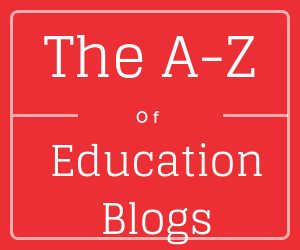Pass or Fail: Beyond Basic Teacher Requirements

In this multi-part series, I provide a dissection of the phenomenon of retention and social promotion. Also, I describe the many different methods that would improve student instruction in classrooms and eliminate the need for retention and social promotion if combined effectively.
While reading this series, periodically ask yourself this question: Why are educators, parents and the American public complicit in a practice that does demonstrable harm to children and the competitive future of the country?
Are the current education and teaching models for student teachers sufficient to prepare them for their jobs as teachers?
Perhaps teaching in general is not a field we need to redesign but one that we need to redefine to support the needs of diverse students, targeting those at risk of retention or social promotion.
First, all teachers should receive a certain level of core education and training in instructional practices and areas of classroom management, curriculum management, and the like. This training should address some of the clearly apparent gaps in understanding. One study conducted in 2007 examined the issue of teaching practices in rural schools and confirmed the need for improving the professional practices of teachers.
In a five-year study of rural schools in Missouri, Harmon et al. also determined that the challenges for rural schools, while similar to urban schools, were even more pronounced. Specific weaknesses include low fiscal capacity, fewer management support services, greater per-pupil costs, higher numbers of teachers teaching outside their specialty area, less competitive salaries and benefits, less specialized space and equipment, less availability of planning support services, and fewer evaluation support services.
Harmon, Gordanier et al. discussed the situation of rural teachers and district leaders in the Missouri Ozarks, a region including all ten school districts in the Ozark Rural Systemic Initiative (ORSI). Funded by the National Science Foundation (NSF), the proportions of students managed by ORSI who are eligible for free or reduced price lunch programs exceed the state average of 40.7 percent. Within these ten districts, two districts also had eligibility rates of 72.5 and 73.4 percent.
The study considered the implementation of new curricula as a means to encourage teachers to review their teaching practices. Even without new curricula, though, the study found that teachers should regularly review curricula with a view to identifying potential improvements or developments they could use in their own practice. Teachers were encouraged to review curricula in the context of teacher-focused training and development, immersing themselves in the insights of national experts in order to learn how to implement standards more effectively in their own classrooms.
Various policy recommendations for high-quality professional development for teachers also outline the need for extensive, long-term professional development that focuses directly on the classroom work of teachers, the curriculum actually taught, instructional materials to be used with students, and necessary assessments.
Although all teachers need not major in education, it makes sense to require a certain number of educational credits at an undergraduate level. Any teacher or prospective teacher of kindergarten or first grade student should clearly have academic training in early childhood development or elementary education. Being able to understand and track the development of children between the ages of five and eight is critical to kindergarten and first grade teachers, who are charged with helping to identify those students who are struggling with some aspect of their development and are therefore putting themselves at risk of being held back.
Teachers working in higher grades need to demonstrate a certain level of formal education in their target subject or subjects, as well as in the art and science of education. But some degree of familiarity with child development and psychology is necessary for even higher-grade teachers if they are to be sufficiently alert to students whose academic struggles suggest they may need additional support.
Teaching certification should be a requirement for public school teaching. It is a standard for education already and, by state, it provides at least some means of assessing the individual teacher’s commitment to their work and their preparedness to invest in the work they are doing.
These “paper” certifications are just that, though. They are important but we can’t wrap a teacher’s worth completely around them – and we also can’t assume that the basics of certification and licensure is enough. It isn’t – and our students deserve more.






